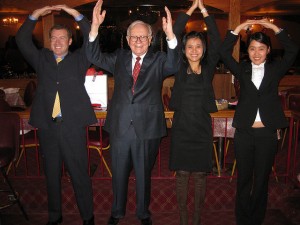Peter Drucker was a legendary Management Consultant who passed away at the age of 95 in 2005.
He was the author of classics such as “The Practice of Management”, “The Effective Executive” & “Drucker on Management”.
Forbes magazine deemed him “the founder of modern management”.

One of my favorite quotes of his appears in his autobiography, Adventures of a Bystander.
Drucker wrote:
“Bucky Fuller and Marshall McLuhan exemplify to me the importance of being single-minded. The single-minded ones, the monomaniacs, are the only true achievers. The rest, the ones like me, may have more fun; but they fritter themselves away. The Fullers and the McLuhans carry out a ‘mission’, the rest of us have ‘interests’. Whenever anything is being accomplished, it is being done, I have learned, by a monomaniac with a mission.”
We are all too often guilty of loading too much on our plates. We waste time on Facebook or Twitter. We binge-watch episodes of House of Cards. Or we spread ourselves too thin when we decide that we are going to start a garden, and train for a marathon and learn Spanish – all within the next 6 months.
Bottom line – Drucker’s advice is prudent.
If we really want to accomplish something that is important to us, whether it is building our careers or raising a family, we would be better served if – instead of ‘frittering’ ourselves away – we focused our time & energies on that one “mission”.
When we are focused & diligent – only then we can succeed…..








